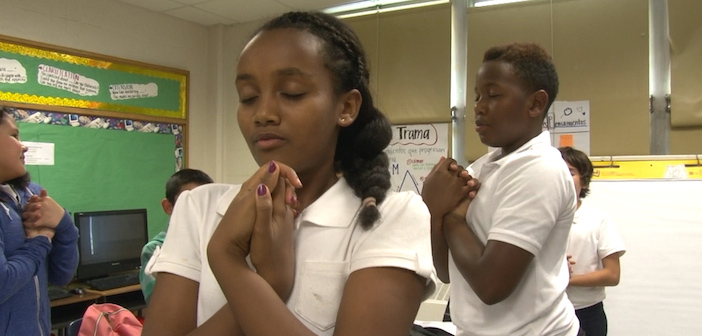The Wallace Foundation has awarded Dallas ISD and out-of-school-time partner Big Thought with a joint planning grant of $400,000 to develop students’ social and emotional intelligence skills that link to success in school, career and life.
Meanwhile, Dallas ISD announced it has identified the 12 schools that will serve as Social and Emotional Learning (SEL) pilot campuses. Trustees in 2016 adopted a policy requiring all Dallas ISD schools to implement SEL districtwide by 2025. The pilot schools will help the district develop a systemic SEL implementation plan that can be used districtwide.
All pilot sites and their partnering out-of-school time providers will begin SEL implementation by participating in adult SEL acquisition training. Campus and after-school staff will embody the five competencies first, and in turn, model and teach skills to students through daily instructional practices, academic integration, and explicit instruction. As a result, the district expects that students at participating sites will demonstrate positive social behavior, fewer conduct problems, less emotional distress, and increased academic achievement.
“Our systemic SEL implementation plan will be more than a program or activity, this work will shape our culture and mindset, and ultimately help students develop the skills that they need to be successful in school, work, and in life,” said Juany Valdespino-Gaytan, Director of Special Projects for Dallas ISD’s Teaching and Learning.
“Big Thought, on behalf of the entire out-of-school-time community, is excited for this amazing opportunity for our city and our kids,” said Gigi Antoni, Big Thought CEO. “Social and Emotional Learning is such an important part of a student’s success, and we are thrilled to partner with Dallas ISD and The Wallace Foundation to support this initiative.”
Dallas ISD and Big Thought are one of nine community partner pairs nationwide to receive a planning grant. The grants are the first phase in the Partnerships for Social and Emotional Learning initiative, a new, multi-year effort by The Wallace Foundation to better understand how schools and afterschool partners can improve and align experiences and climate to foster children’s social and emotional learning.
A growing body of research, including the Wallace-commissioned University of Chicago study Foundations for Young Adult Success, has linked social and emotional learning – which are known by different terms including non-cognitive skills, character and soft skills – to success in school, career and life. It is not yet known, however, how school and afterschool experiences can be aligned and delivered in real-world, urban settings to help develop these skills.
“There’s tremendous interest in helping children to develop the positive attributes and skills that are associated with well-being in and out of school and many models are being tested,” said Nancy Devine, the director of learning and enrichment at The Wallace Foundation. “We’re interested in exploring how an intentional partnership between school districts and organizations that provide programming during out-of-school hours can benefit young students.”
Through the planning grant period, school districts and afterschool intermediaries will collaborate to improve adult practices that support the development of students’ social and emotional skills.
Technical assistance and guidance will be provided to each pair of partners from national experts affiliated with the Weikart Center for Youth Program Quality, the Forum for Youth Investment and the Center for Academic, Social and Emotional Learning (CASEL).
Dallas ISD and Big Thought were among 24 districts with high proportions of disadvantaged students that were invited to apply for the planning grant last spring. The foundation drew those candidates from a pool of 145 that were identified by scans and nominations from the field.
In the next phase, in summer 2017, up to six district-intermediary pairs will be selected from among the nine cities chosen for planning grants to receive three-year implementation grants from Wallace. This phase will also include comprehensive research by The RAND Corporation to provide useful new evidence to the field.

